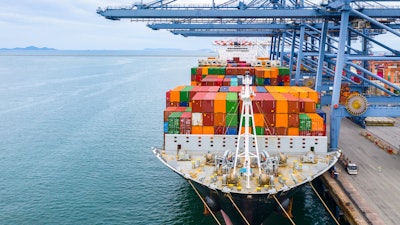
On April 13, Iran launched a coordinated attack involving hundreds of drones and missiles against Israel. Despite support from allied forces (France, the United Kingdom, and the United States), Israel intercepted most of the projectiles, but the incident has raised fears of wider escalation and disruptions to maritime operations.
In a significant escalation of tensions in the Middle East, Iran's capture of the MSC Aries, a container ship linked to Israel, has reverberated throughout the maritime industry. This development, occurring prior to the missile attacks on April 13, underscores the deepening conflict in the region. Believed to be in response to an Israeli raid on the Iranian consulate in Syria, the capture has heightened concerns about the security of key trade routes and the stability of regional hubs like Jebel Ali.
This latest development follows Iran's seizure of a container ship linked to Israel near the Strait of Hormuz, further intensifying concerns about the security of vital trade routes and the stability of regional hubs like Jebel Ali.
As the situation unfolds, stakeholders are closely monitoring developments and preparing for potential impacts on global trade and shipping markets.
“Regardless of immediate outcomes, we anticipate heightened uncertainty in shipping markets. This comes at a time when tensions have already been simmering since the end of November, particularly in the Bab-al-Mandab strait and the Red Sea. Now, the Strait of Hormuz emerges as a new focal point, with significant implications for Dubai, specifically Jebel Ali, a core transhipment hub in the region,” says Christian Roeloffs, co-founder and CEO of Container xChange. “As far back as December, we highlighted the vulnerabilities in key maritime routes, such as the Bab-al-Mandab strait, emphasizing the potential implications for global trade and shipping networks if the disruptions spread to e.g., the Strait of Hormuz. With the recent events, these concerns have flared up.”
“The Strait of Hormuz's strategic importance, coupled with its role as a key transit point for maritime traffic, emphasizes the significance of this latest escalation. Furthermore, the implications extend to major transhipment hubs like Jebel Ali in Dubai, amplifying the potential impact on regional trade and shipping operations,” adds Roeloffs.
Key takeaways:
- As a result, war risk premiums will increase, leading to heightened volatility in shipping markets.
- Renowned as one of the world's most strategically significant chokepoints, The Strait of Hormuz connects the Persian Gulf with the Gulf of Oman and the Arabian Sea, making it vital for global energy security. Any disruptions in the region can have immediate implications for global oil markets, affecting oil prices, shipping routes, and energy security worldwide.




















